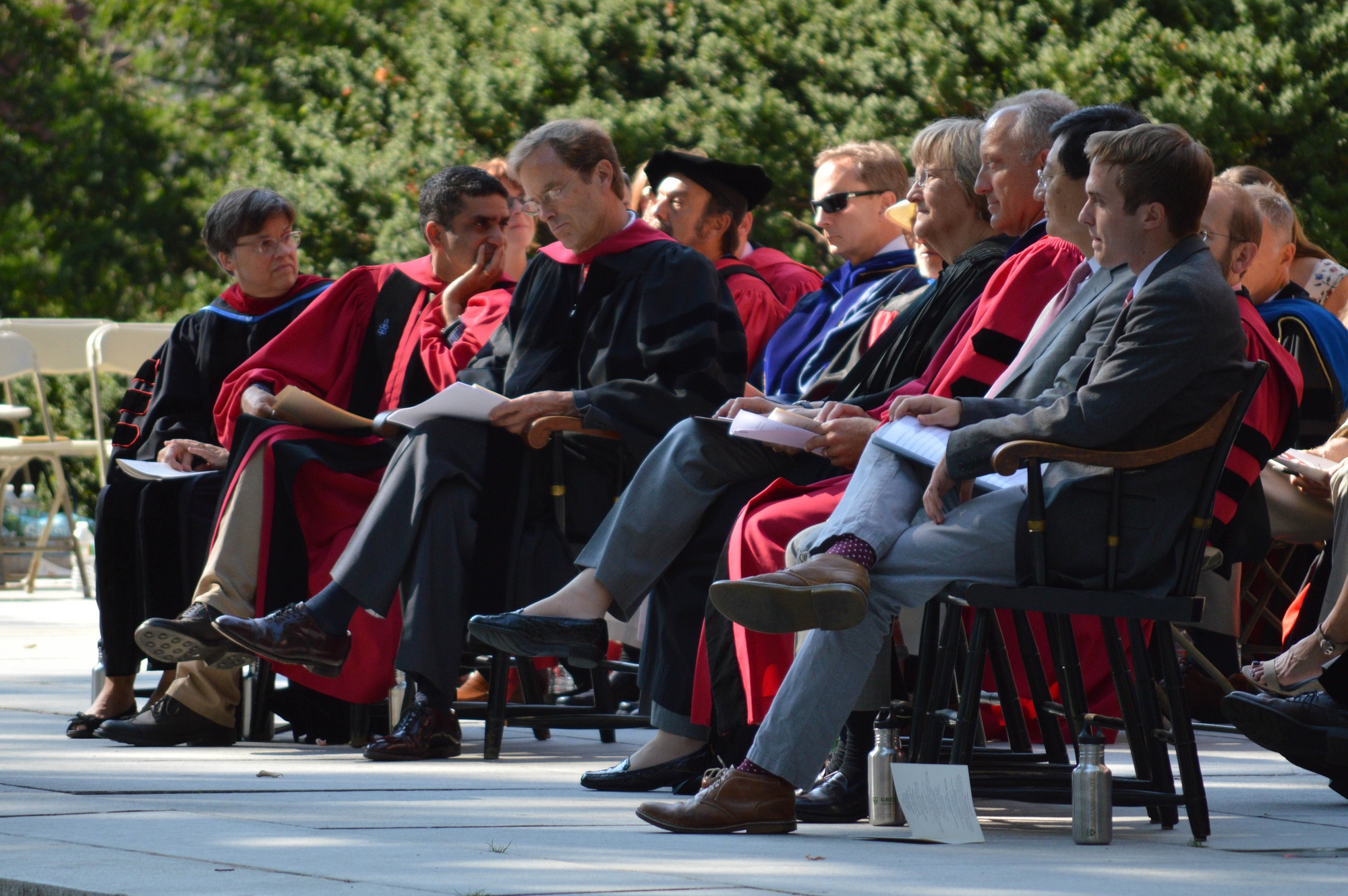
News
Cambridge Residents Slam Council Proposal to Delay Bike Lane Construction

News
‘Gender-Affirming Slay Fest’: Harvard College QSA Hosts Annual Queer Prom

News
‘Not Being Nerds’: Harvard Students Dance to Tinashe at Yardfest

News
Wrongful Death Trial Against CAMHS Employee Over 2015 Student Suicide To Begin Tuesday

News
Cornel West, Harvard Affiliates Call for University to Divest from ‘Israeli Apartheid’ at Rally
Harvard Affiliates Tell Stories of Rejection in BSC Project

If one were to be asked what Harvard's College Dean, the interim Dean of Student Life, and the Director of University Health Services had in common, few would answer that all of them were rejects.
But that is exactly what each one of them said in videos and written statements posted online for the Bureau of Study Counsel’s “Reflections on Rejections” initiative. Dean of the College Rakesh Khurana’s submission to a journal was denied, interim Dean of Student Life Thomas A. Dingman ’67 failed to write a History thesis, and University Health Services Director Paul J. Barreira was rejected from several medical schools.

The effort, a part of the the BSC’s ongoing Success-Failure Project, features a slate of professors, deans, staff members, and alumni.The idea for the project came out of a desire for students, faculty members, and administrators to think deeply about their definitions of success and failure, Ariel Phillips, an academic counselor at the BSC and co-coordinator of the project, said.
“Students were thinking about a path to success as very smooth, and defining success in narrow ways,” Phillips said. “Nobody was really asking, at least not when we were listening... how can I have a life that feels meaningful, as opposed to a life that’s sort of conventionally sanctioned as successful?”
Such an attitude toward success and failure, Phillips said, is not conducive to a life of risk-taking and exploration.
“When you’re trying to lead a life that’s smooth and not make any errors, you just try not to make many mistakes,” Phillips said. “You try to get the highest possible GPA you can, which I can appreciate, but in the the process we were feeling that there’s stuff that’s lost.”
In an effort to conduce discussion on the topic, the BSC collected accounts of rejection into a booklet published in 2013. Since then, the accounts of rejection have also taken the form of videos, some of them posted online as recently as fall of 2015.
“How we respond to a failure or rejection emerges in these pages as one of the most important skills we learn in our lives,” BSC Director Abigail Lipson wrote in her introduction to the 2013 booklet. “We learn to actively seek out the invaluable information and lessons to be gleaned from even a truly awful experience—rather than getting defensive or dejected or derailed.”
The accounts in the collection range from the academic to the professional to the personal. Pusey Minister Jonathan L. Walton, who is also a professor at the Divinity School, spoke on camera about what his rejections from graduate schools and from job opportunities taught him.
“Rejection is just part of the game of life,” Walton said in the video. “To win is, I would say, is to know how to suffer defeat. To know how to understand that you aren’t going to hit the mark, that you’re going to fall short. That is what gives us the emotional intelligence and the work ethic to get back up and try to do better.”
.
Want to keep up with breaking news? Subscribe to our email newsletter.
